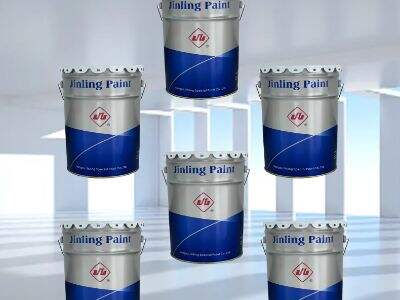Zgjedhja e larg lidhjes është shumë e rëndësishme për industria. Larg lidhjet poliurethane speciale të bërë nga JINLING PAINT nuk janë të njëjtë me llojet e tjera të largimeve. Lexoni më tepër për të ditur si këto larg lidhje mbrojnë sipërfaqet nga kimikat e rënda.
Mbrojtje Nga Kimikat Të Mforcuar Të Gati Të Marre Atë
Një avantazh i madh i JINLING PAINT kapak Polyurethane është rezistencja e tyre në konfront me kjemikal të krujshëm. Ata janë prodhuar për të mbajtur larg asidet e fuqishme, zbatore dhe tjera kjemikali të krujshëm qe gjenen në fabrica. Pse se, sipërfaqet e revşura me këto kapak të larg dhe mund të qëndrojnë të fortifikuara dhe të parashikura edhe pas ekspozimit në kjemikale të krujshëm.
Mbrojtje Larg dhe Larg nga Rrusti dhe Larg dhe Larg
Përveç të mbajnë ato kjemikale të krujshëm, kapaku i JINLING PAINT-it përfshin gjithashtu rrustin dhe llogarinë. që formon një shkallë të fuqishme që mbrojt sipërfaqet nga larg dhe larg dhe larg dhe llojet e tjera të pavlefshme. Kjo bën mashinat industriale dhe ndërtesat të jenë më të gjata, dhe është një ruajtje e kohës si dhe një ruajtje e parashikur për kompanit që s’mund të jenë në biznesin e rregullimeve.
Jo Larg dhe Larg dhe Larg dhe Larg me Kjemi të Tjerë
Të Gjitha Kapak Polyurethane të JINLING PAINT Kapak Polyurethane Këto kapak të vetme kremore janë ndjeshme për të qenë rezistente ndaj llojeve të ndryshme të solventeve dhe asidave. Kjo i bën ato një opsion të mirë për fabrikanë, ku sipërfaqet mund të kontaktohen me kjellin e ndryshme kimike. Largohet asidi përdorur në prodhim apo solventi përdorur gjatë largimit, këto kapak janë gati për punë dhe do të mbrojen për shumë kohë.
I thelbueshëm në kushtet e ruajtjes
Përdorimi i rëndësishëm dhe kushtet e larg dhe të vatrët në hapësirat industriale mund të jenë të dëmtuara për kapak. Kapak JINLING PAINT kapak Polyurethane janë projektuar për t'u ndihmuar në këto kushte thelbueshme. Força e tyre e fortë mbahen sipërfaqet të mbrojtura si dhe të parashikura edhe në kushtet më thelbueshme.
Varren e fortë kundër zemrimit
Një larg dhe e vlefshme e tjera përballje e kapave të sipërme të VEPJEJ JINLING është vetita e saj protektuese me ndryshore larg qeverisë kimiqe. Këto kapë formojnë një varg të ngushtë që i mban ato nga të dëmtohen kur kontaktohen me lëngat kimiqe. Kjo siguron se sipërfaqet mbeten fortë dhe larg dhe larg përgjegjshmëri në kohë, duke siguruar se bëjnë punën e re në mënyrë të mirë.
Interested in becoming a distributor or brand partner? Contact us at [email: [email protected] ] to explore collaboration opportunities.
 EN
EN
 AR
AR BG
BG HR
HR RO
RO RU
RU ES
ES TL
TL IW
IW ID
ID LV
LV LT
LT SR
SR SK
SK SL
SL UK
UK VI
VI SQ
SQ TR
TR MS
MS HY
HY AZ
AZ KA
KA BN
BN BS
BS GU
GU LO
LO LA
LA MN
MN NE
NE YO
YO MY
MY KK
KK UZ
UZ AM
AM KU
KU KY
KY
